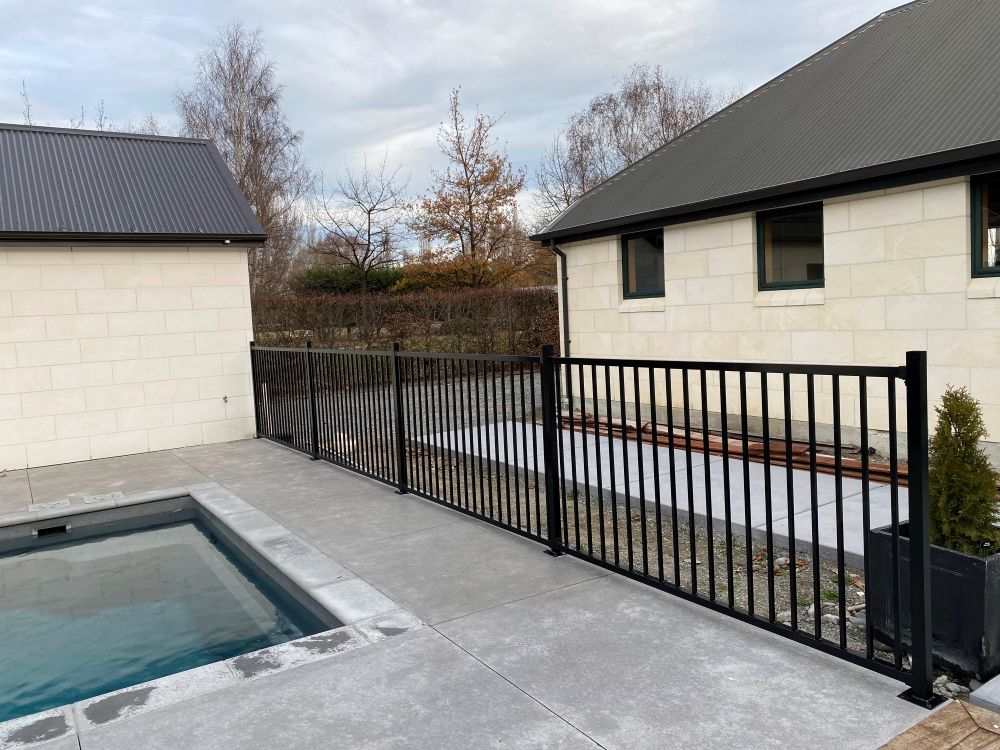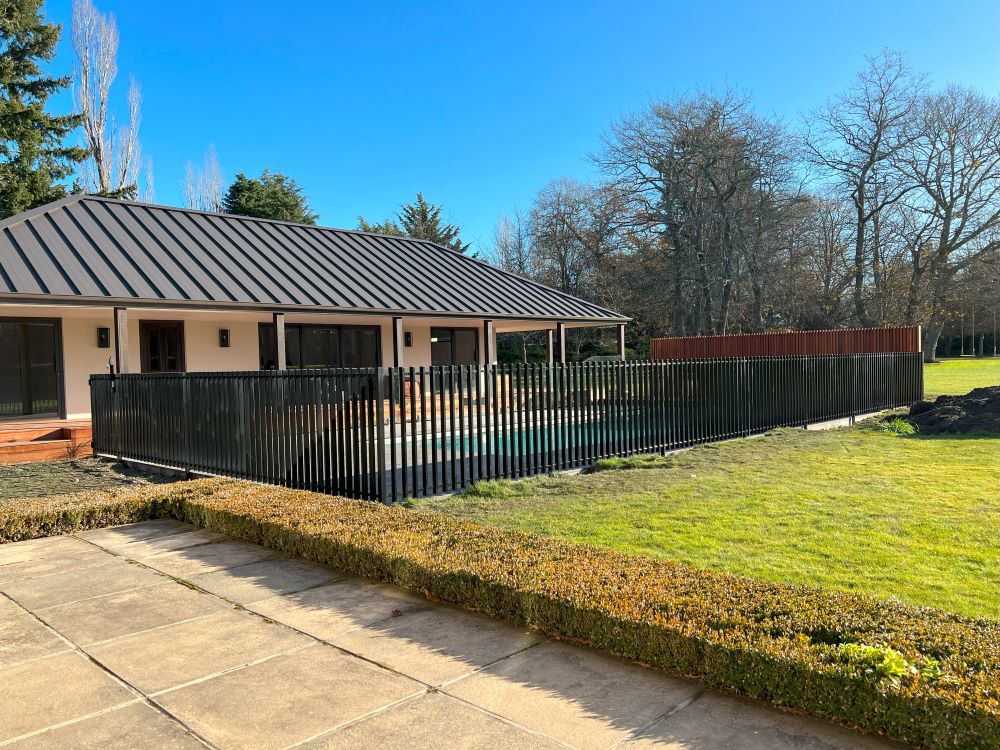Installing a pool fence is not just about aesthetics, it’s a legal requirement designed to save lives, particularly those of young children. In Christchurch, pool fencing compliance is governed by both national legislation and local council regulations. Whether you’re a new pool owner or upgrading an existing setup, understanding these requirements is critical.
This comprehensive checklist will guide you through every stage of ensuring your pool fencing in Christchurch meets compliance standards.
Understanding Christchurch’s Pool Fencing Regulations
Overview of New Zealand’s Residential Pool Laws
In New Zealand, the Residential Pools Act 2016 (formerly part of the Building Act) sets the foundation for pool fencing requirements. It mandates that all residential pools deeper than 400mm must be fenced or otherwise restricted to prevent unsupervised access by children under five. The purpose is to reduce accidental drownings, a tragic but preventable occurrence.
Specific Requirements from Christchurch City Council
The Christchurch City Council enforces the national standards while also applying local interpretations based on property layouts and common regional scenarios. For example, if your property borders public reserves or has shared boundaries, the council may require enhanced fencing solutions. Their focus lies in ensuring barriers effectively isolate the pool from the residence and immediate outdoor area unless controlled by compliant gates.
Common Misconceptions Around Pool Fencing Compliance
Many homeowners assume that simply having a fence is enough. However, compliance hinges on details such as fence height, latch positioning, and gate direction. Misunderstandings around these factors often lead to failed inspections or enforcement actions. It’s vital to familiarise yourself with not just the presence of a barrier, but the specifics that make it lawful.
Key Features of a Compliant Pool Fence in Christchurch
Minimum Height and Maximum Gaps
A compliant pool fence must be at least 1.2 metres high. There can be no climbable objects within 1.2 metres of the fence on either side, including trees, furniture, or uneven ground. Gaps under the fence must not exceed 100mm, and vertical bars must be spaced close enough to prevent children squeezing through.
Gate and Latch Standards
Pool gates must open away from the pool area and close automatically from any open position. Latches should be located at least 1.5 metres from the ground or must be child-resistant if lower. These gates also require regular maintenance checks to ensure consistent functionality over time.
Approved Pool Fence Materials
Materials must be durable and secure. In Christchurch, the most common options include aluminium panels, timber fencing, and frameless or semi-frameless glass. Regardless of style, the material must not have climbable footholds and should be capable of withstanding reasonable force.
Inspection and Certification Process
When and How Often Inspections Are Required
Under current laws, every pool fence in Christchurch must be inspected every three years by a qualified inspector. These checks ensure that changes in landscaping, structural wear, or modifications haven’t compromised compliance.
What Inspectors Look for in Christchurch
Inspectors examine more than just the fence. They review proximity to doors and windows, gate operation, latch compliance, and overall integrity of the barrier. If you’ve altered your pool area or had significant renovations, you must notify the council to determine if a reinspection is necessary.
Certification Timeline and Renewal
Once your fence passes inspection, you’ll receive a certificate of compliance. This certification remains valid for three years. It’s your responsibility as the property owner to ensure subsequent inspections are booked on time to maintain legal standing.
Preparing Your Property for a Pool Fence Inspection
Self-Assessment Checklist Before the Inspector Arrives
Before the inspector visits, perform a self-audit. Check the gate operation, measure fence height and gaps, look for climbable items nearby, and confirm latch positioning. This proactive approach can save time and avoid unnecessary re-inspections.
Fixing Common Issues That Lead to Non-Compliance
Some frequent compliance issues include gates that don’t self-close, fences with deteriorating materials, or vegetation growing too close. Addressing these issues early demonstrates diligence and often improves inspection outcomes.
Documentation You May Need to Provide
Prepare plans, previous inspection reports, and installation certificates if available. If you’ve recently upgraded your pool fence, having documentation from a licensed installer can support your compliance case.

Working with Christchurch Pool Fence Professionals
Hiring a Licensed Installer vs DIY
While DIY solutions can be tempting, they often miss critical compliance elements. Licensed installers understand local laws and typically provide warranties on their work. This professional backing can ease the inspection process significantly.
Choosing a Fencing Contractor Familiar with Local Laws
Seek contractors with experience in the Christchurch region. They’ll be familiar with council expectations and may offer designs tailored to specific property types common in the area, such as hillside or multi-level homes.
Benefits of Using Council-Approved Suppliers
Using council-approved suppliers not only adds credibility but also increases the likelihood that your materials and installation methods meet code. This often simplifies the approval process and reduces long-term maintenance issues.
Dealing with Non-Compliance Notices
What Happens if Your Pool Fence Fails an Inspection
Failing an inspection isn’t uncommon, but it must be addressed swiftly. You’ll receive a non-compliance notice outlining required corrections and a timeframe. Continued non-compliance can lead to fines or, in extreme cases, legal action.
How to Rectify Issues and Avoid Fines
Respond promptly by hiring a contractor or making necessary adjustments yourself. Always document your fixes and notify the inspector once the work is complete. Timeliness is key to avoiding penalties.
Reinspection Procedures and Fees
A reinspection will be scheduled once corrections are reported. Christchurch City Council may charge a fee for this service. Be sure all issues are fully resolved before the follow-up visit to avoid additional charges.
Extra Considerations for Unique Christchurch Properties
Pool Fencing for Heritage Homes or Shared Boundaries
Older properties or those with heritage designations may face unique challenges. In such cases, modified fencing designs that meet both aesthetic and legal criteria are available. If your fence runs along a shared boundary, neighbour agreements may be necessary.
Sloped Sections and Unusual Pool Shapes
Uneven terrain can complicate fence installation. Stepped fencing or custom panels may be needed to maintain the required height and gap restrictions. Likewise, uniquely shaped pools may demand tailored fencing layouts.
Coastal and Wind-Prone Area Adaptations
Christchurch’s coastal suburbs face strong winds that can affect certain materials. In these areas, heavy-duty fixtures and reinforced glass may be necessary to ensure long-term compliance and safety.
Staying Updated with Christchurch Fencing Laws
Recent Changes or Updates to the Building Code
Regulations can evolve. It’s important to stay aware of any new amendments to the Building Code that might affect your pool fencing, especially after significant local events or national reviews.
How to Receive Notices About Regulation Changes
Subscribe to updates via the Christchurch City Council website or ask your fencing contractor to notify you of major changes. Pool safety newsletters and industry publications are also helpful resources.
Resources and Contacts for Further Help
The Christchurch City Council website, licensed pool inspectors, and local builders’ associations are excellent starting points. Always verify advice through official channels before making structural changes.
Final Thoughts on Pool Fence Compliance in Christchurch
Maintaining a compliant pool fence in Christchurch isn’t just a legal obligation, it’s a crucial measure to protect children and visitors from harm. By following this comprehensive checklist, homeowners can navigate council regulations, avoid penalties, and ensure peace of mind.
Whether you’re building a new pool or managing an existing one, taking proactive steps today will pay dividends in safety and compliance tomorrow.
